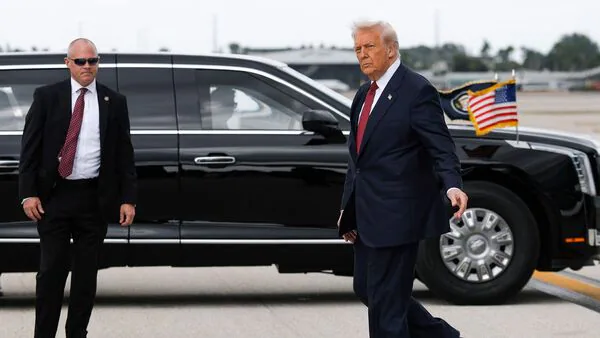
US Supreme Court Expresses Skepticism Over Trump's Use Of Emergency Powers To Impose Tariffs
The case centers on Trump's unprecedented use of the International Emergency Economic Powers Act (IEEPA), a 1977 law designed for national emergencies, to impose tariffs on nearly all US trading partners. Lower courts previously ruled that the administration exceeded its authority, and businesses affected by the tariffs, along with 12 mostly Democratic-led states, challenged the move.
Justices challenge Trump's use of IEEPASolicitor General D. John Sauer, representing Trump, faced pointed questions from both conservative and liberal justices about whether the president had overstepped Congress's power to levy taxes and tariffs.
Chief Justice John Roberts highlighted the constitutional limitations: "The imposition of taxes on Americans has always been the core power of Congress."
Justice Amy Coney Barrett pressed Sauer on the language of IEEPA, questioning if“regulate importation” could truly authorize tariffs: "Can you point to any other place in the code or any other time in history where that phrase together 'regulate importation' has been used to confer tariff imposing authority?"
Sauer defended the administration, arguing that the tariffs were essential to counteract US trade deficits and avert“ruthless trade retaliation” by other countries.
Also Read | Trump blames Democrats for election losses in New York, Virginia, New Jersey Major questions doctrine at centerThe major questions doctrine, which requires Congress to clearly authorize executive actions of vast significance, was heavily debated. Roberts asked why it should not apply to Trump's tariffs:
"The justification is being used for a power to impose tariffs on any product, from any country, in any amount, for any length of time... why doesn't it apply?"
Sauer countered that the doctrine does not apply in foreign affairs contexts, but justices, including Elena Kagan and Ketanji Brown Jackson, questioned whether the president's powers could override Congress in such a sweeping manner.
Global implicationsTrump's IEEPA-based tariffs have generated $89 billion between February and September 2025. The policy has contributed to a global trade war, unsettling markets and straining relations with China, Canada, Mexico, India, and Brazil.
Historically, IEEPA had been used for sanctions and asset freezes, not tariff imposition. The administration argues that the statute gives the president broad discretion in national emergencies, a claim viewed skeptically by the justices.
Also Read | Mamdani open to talks with Trump; vows to work to honour New Yorkers' trust Legal Disclaimer:
MENAFN provides the
information “as is” without warranty of any kind. We do not accept
any responsibility or liability for the accuracy, content, images,
videos, licenses, completeness, legality, or reliability of the information
contained in this article. If you have any complaints or copyright
issues related to this article, kindly contact the provider above.


















Comments
No comment